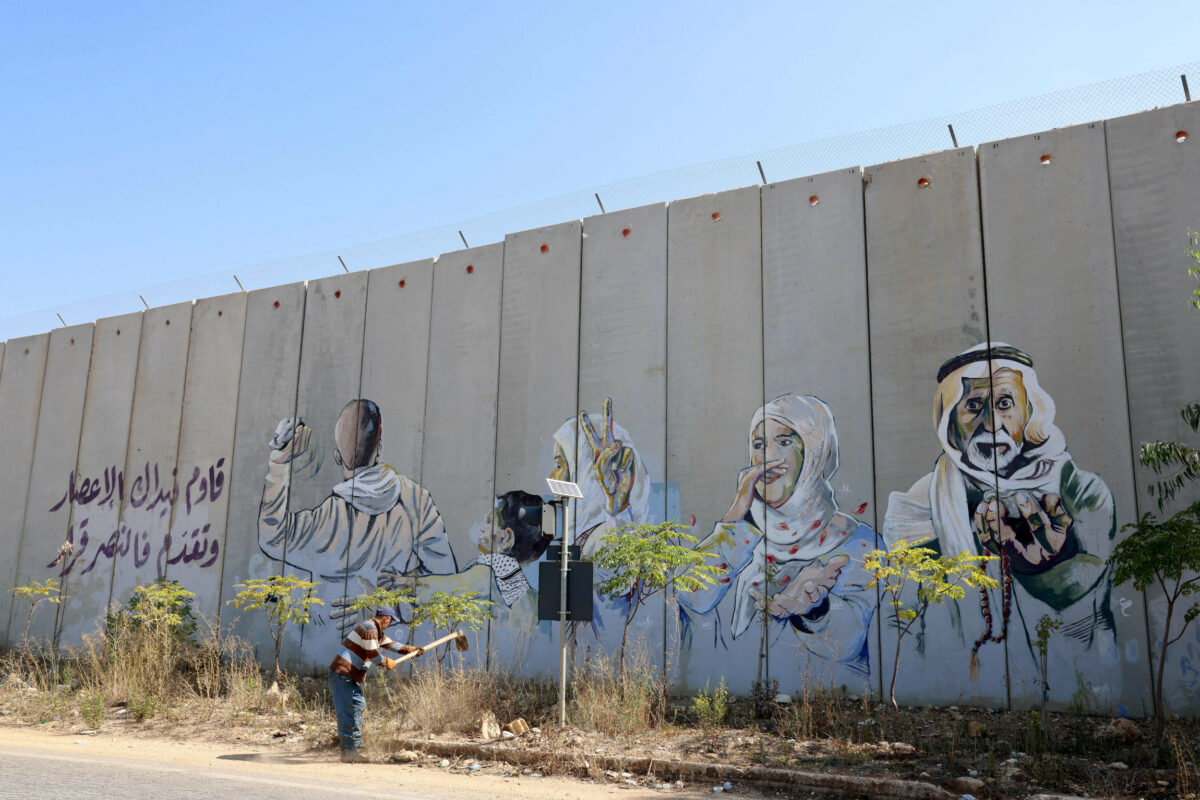
Sub Residents of towns and villages in South Lebanon brace themselves tentatively as Israel’s bombardment of Gaza escalates, leading to rising tension on the border.
Amidst the deafening rocket blasts, their home shook, and Lama felt a creeping fear slowly taking hold. It all began when Hamas, the Palestinian faction, shocked the world with a surprise attack on Israel on October 7, leading to a back-and-forth exchange of artillery and rocket fire between Israel and Lebanon’s Hezbollah along the southern border.
Israel retaliated by unleashing an unrelenting bombardment on Gaza, resulting in the tragic loss of more than 1,500 lives, with approximately half of the victims being children and women.
Meanwhile, along the southern border with Lebanon, tensions have surged and waned as Israel rained down white phosphorus upon the southern plains.
As the Gaza conflict seemingly drags on with no end in sight and the specter of potential escalations between Hezbollah and the Israelis along the southern border remains a looming threat, the people of southern Lebanon have taken it upon themselves to vacate the area, determined to avoid a repeat of the 2006 scenario.
“Half of my family members have left, but my dad and I have decided to stay. The sounds, honestly, don’t really scare me, but if the clashes spill over the borders, then we’ll hit the road,” Lama, residing in the neighboring Lebanese village of Aynata, told NOW.
Lama, who experienced the 2006 war between Lebanon and Hezbollah in July of that year, emphasized that it’s the fear stemming from fellow humans that poses the greatest threat.
“When people panic, it becomes difficult to think straight. However, things are calmer now, and we do not intend to leave our houses, and a lot of people have come back to their senses and gone back to their villages,” she said.
A nightmare unfolding
Just today, Israel has issued a directive, instructing roughly 1.1 million residents in the northern area of the Gaza Strip to move to the southern region within a tight 24-hour window.
The World Health Organization has reported that Gaza’s local healthcare authorities have declared it unfeasible to transfer patients in vulnerable conditions.
Meanwhile, Hamas, the governing authority in the Gaza Strip, has urged civilians to dismiss the evacuation order, branding it as “misleading propaganda.”
Amidst the unceasing attacks, people have been displaced, entire families have disappeared all together and neighbourhoods have been flattened.
While the specter of a full-scale regional conflict, including a showdown between Lebanon and Israel, has crossed the minds of many, it’s important to note that numerous perspectives deem this scenario unlikely. One such perspective, presented by The Washington Post and classified as a “top-secret U.S. intelligence document,” suggests that “a massive attack by Hezbollah, the political party and militant group backed by Iran, would be unlikely. ”
For Zeinab*, a 35-year-old resident who was compelled to vacate her home in Qana, the fear of a larger conflict has resurfaced, but her initial apprehensions have eased.
“I initially left with my sisters and our kids, but it’s clear that things along the southern border are relatively calm at the moment, so there’s no need to exacerbate our concerns,” Zeinab shared with NOW.
Both Zeinab and Lama support Hezbollah and have confidence in the group’s ability to safeguard the southern region. However, they harbor concerns about the extent of devastation that Israel could inflict this time.
“Our children haven’t experienced past wars in Lebanon, and we wouldn’t want their lives to be disrupted in this way,” she expressed.
Lebanon remains ensnared in a political deadlock and grapples with a severe economic crisis that has had detrimental repercussions on the local currency, leaving people unable to access their dollar accounts.
“I don’t want my children to live with the constant fear of impending doom and the uncertainty of their future. I simply want them to enjoy a normal life,” Zeinab emphasized.
Unnerving silence
In the southern border village of Rmaych, Bashir Assaf recalls the events of 2006 without much concern, as he chose to stay in his village throughout that turbulent time. This time, however,, Assaf bears the responsibility of safeguarding his children.However, he maintains an optimistic view, believing that the current situation won’t escalate further.
“While more than half of the village is now vacant, personally, I don’t foresee increased tension. However, families with children felt compelled to leave to shield their kids from fear,” Assaf told NOW.
On the first day, a sense of impending conflict led to grocery store rushes and long queues at gas stations, Assaf recounts. Yet, the subsequent days saw life returning to normal in the village. The alarming sounds did not extend beyond the first day, reassuring the community.
“I believe it’s Israel that is attempting to incite Hezbollah, but so far, Hezbollah’s response has been measured,” he noted.
Ahmad*, hailing from the southern city of Sidon, opposes the idea of abandoning his home should the conflict spill across the borders.
“I would rather stand and fight for the liberation of Palestine if given the chance,” he told NOW.
Since Sunday, residents in southern Lebanese villages near the border with Israel have been leaving their homes, indicating the sentiment against entering a war with Israel.
The upcoming reopening, of schools has added to the complexity of the situation, particularly concerning Lebanon’s younger generation. The 2006 war occured in July when schools were typically on break.
Lebanon’s fragile infrastructure has already sustained substantial damage since the crisis began in 2019, rendering it ill-prepared for a catastrophic war. While there are currently no overt indications of war, the unpredictability of the situation looms large.
Dana Hourany is a multimedia journalist with @NOW_leb. She is on Instagram @danahourany and Twitter @danahourany.








